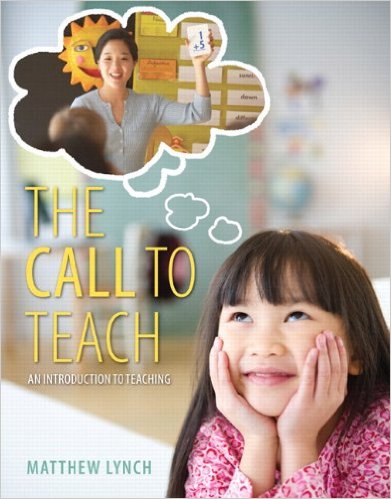Teacher Tips for the First Months of School

Check out our list of teacher tips for the first months of school.
Consider the first impression that you will make with learners. Pay attention to your facial expressions and movements. Attempt to look relaxed and confident in front of the learners. They have only you to focus on. They will scrutinize every piece of you. Show them the best of you on the first day.
Prepare what you will say on the first day of class. Script the day and practice beforehand. You want to show learners that you know your material, are confident and are serious about their learning. If you are disorganized or appear nervous, learners will take that as a sign of weakness.
Give learners an overview of what they can expect to learn in the class during the semester or the entire year. Summarizing the big picture helps learners understand what is included in the curriculum and what they will learn. Share this info in a handout and orally in class.
Don’t get glued to one spot throughout the first day of classes. Move around the class, pointing out where items are kept, how to access the computers, and where to find tasks and other pertinent info.
Start each class period or each day with various activities as soon as the learners enter the class. Every minute in the class counts. Learners and educators need to be held accountable for using each minute. For instance, a math problem or a vocabulary word could be written on the board, or learners could write in their journals. Each activity must be short and completed within the first few minutes of class. Learners need a daily routine structure to maximize their learning potential.
A scavenger hunt to familiarize learners with the class is a great activity for the first day of school. Learners can walk around and discover where things are located without you telling them. This is an instance of hands-on learning instead of learners sitting and getting the info from the educator.
Prior to the first class, you may feel prepared, but after the first day of classes, you may feel overwhelmed. This is a natural feeling that many educators experience. Veteran educators will advise you to take one day at a time. Listen to the veteran educators because they have been there prior.
In the elementary grades, separate the class into “responsibility teams” responsible for taking lunch count, handing out papers, or picking up the room. Instruct learners on what is expected of them with each task. Not only does this teach responsibility, but learners also feel a part of the class. Get these assignments in the first week, so it becomes routine.
In middle and high school, teach learners to routinely pick up around their area before leaving class. Learners must know they are responsible for keeping the class free of debris and trash.
Instruct learners how to use the computers in your room. Learners need to hear and see the school policy for accessing computers and the Internet. Find the policy in the learner hand- book and read it aloud to them. Ask other educators about the consequences of accessing illicit material from the school computer. The rule also applies to adults in the school.
Instruct learners during the first week of the school year how you want assignments to be labeled or formatted. Ask educators in your depart- ment or grade level if there is a standardized way that all learners address their papers (name, date, mar- gins). If there is no ordinary way, develop your way. This streamlines the grading process.
Consider how you will return learner work. Individual work is a confidential matter between the learner and the educator. Grades need to remain confidential. Be the one who distributes graded papers. Put them face down on the desk. Alert learners ahead of time not to ask another person about the grade that they received.
Carry folders for learner work in marked crates or boxes in the class where learners have access to their own work. Learners can see their progress. This is also an organizational method that keeps papers all together.
In elementary school, alert parents when learners work; announcements and messages will be coming home with learners. Ask other educators how materials, papers, and announcements are sent home and on what day. Include a letter to parents describing what the learners are working on and what you have planned for the future.
Ask learners about their interests, books that they have read, and their learning preferences. The info you gain will help you design appropriate lessons that support their learning style, what they like, and what they read.
Decide when and how you will see learners who need extra help or have questions about the material. Consider before and after school sessions, during recess, or at the end of the lunch period. Sometimes phone and email correspondence is helpful as well. Set up your procedures for additional help at the beginning of the year so learners can plan accordingly.
When you begin working at school, take the first step and introduce yourself to other educators. Because time is limited for educators before classes begin, stay a short while, ask a question, get the answer, and resume your work. From these encounters, you will gain a good deal of info.
Send out notes to all your learners before classes begin, even high school learners. Everyone loves to receive a private message, but more significantly, you are making connections that can make a difference in a learner’s life.
If you are an educator with a transition class (a class transferring from another building), pay special attention to the learners in the hallway, at lunch, after school, and in class. Frequently they can be intimidated by the new surroundings and procedures. Get sure you let them know that you’re available to answer any questions they may have.
Ask learners to write a short autobiography. Attach a picture of the learner. You’ll have a bulletin board display, which will help you to get to know the learners. In addition, learners will get to know each other.
Before your report for the first day of professional development in your school district, utilize the Internet to help you find ideas, models, and lessons that will tie into your core curriculum. Take the concepts and use them to foster learner growth.
Although you may have a well-organized lesson, you may have a few minutes left at the end of a class period. No matter what grade level, idle time may turn into chaos. Create filler that you can use just in case. Once you haven’t taught the material prior, you will quite possibly overestimate or underestimate the time factor. Consider the following examples: 1. An open-ended question about a subject you’ve been covering to be submitted when the bell rings; 2. A story problem that the learners can turn to a partner and work on together; 3. “What if” questions that encourage critical think- ing about the subject you’ve been covering.
Consider how you will allocate the time on the first day of class. Understand what must be accomplished, and build your schedule accordingly. Consider the following: 1. Greet learners at the door with a smile (the students are very nervous and excited on the first day). 2. Spend a few minutes to tell the learners about yourself. 3. Take attendance orally. This provides a chance to pronounce names and for learners to correct you. 4. Fill out forms and other info requested by the office.
Focus on what other things need to be done on the first day. Depending on the time and the learning activity you have planned, you may need to do some of the following: 1. Clarify rules, guidelines, procedures, or expectations. 2. Issue books. 3. If you have a arts room, science lab, or industrial tech room, you will want to give a tour of the facilities. Restate safety issues as you tour. 4. Give a short task either in class or for the next day. Get learners back into school mode quickly.
Check a weather app to find the weather forecast every night. As an educator, you need to dress accordingly. Some buildings are not air- conditioner or climate controlled. Bring a change of clothes if somebody spills on you, you spill on yourself, or the weather changes. If you teach younger learners, you might want to incorporate weather tips as you instruct learners how to dress the next day.






